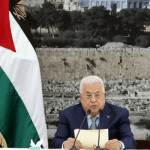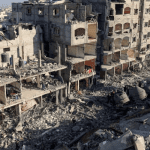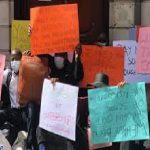Hamas says it has given its response to a framework proposal for a new ceasefire in Gaza.
The details of the deal – set out by Israel, the US, Qatar and Egypt – have not been released.
It was earlier reported to include a six-week truce, when more Israeli hostages would be exchanged for Palestinian prisoners.
Israel and the US have both said they are reviewing Hamas’s response.
US Secretary of State Antony Blinken, who is currently in the Middle East, said he would discuss Hamas’s response with officials in Israel on Wednesday.
While Mr Blinken has given no indication of how the US views the response, President Joe Biden described it as “a little over the top” – suggesting the Israeli leadership will not easily agree to what the group is asking.
A senior Hamas official told the BBC the group had presented a “positive vision” in response to the framework but had asked for some amendments relating to the rebuilding of Gaza, the return of its residents to their homes and the provisions for those who had been displaced.
The official said Hamas had also asked for changes relating to the treatment of those injured, including their return home and transfer to hospitals abroad.
The proposal was sent to Hamas around a week ago but a representative told the Reuters news agency it had taken them until Tuesday to respond because parts of it were “unclear and ambiguous.”
Qatari Prime Minister Sheikh Mohammed Bin Abdulrahman al Thani has described Hamas’s response as “positive” in general.
The conflict in Gaza was triggered by an unprecedented cross-border attack by Hamas gunmen on southern Israel on 7 October, in which about 1,300 people were killed and about 250 others taken hostage.
More than 27,500 people have been killed in Gaza since then, according to the health ministry in the Gaza Strip, which has been governed by Hamas and blockaded by Israel and Egypt since 2007.
Hamas is proscribed as a terrorist organisation in several countries.
During a week-long ceasefire in late November, 105 Israeli and foreign hostages were freed in exchange for 240 Palestinians held in Israeli jails.
The timing of any new deal could be complicated by claims briefed earlier this week by Israeli defence officials that the military is “making progress” in its hunt for Hamas’s leader in Gaza Yahya Sinwar.
However, Prime Minister Benjamin Netanyahu is under intense domestic pressure to secure the release of the remaining hostages.
A growing sense of regional crisis also adds to the urgency Mr Blinken brings to the Israeli city of Tel Aviv, as he arrives seeking progress on the deal.
The US is increasingly trying to stem a widening regional escalation after last week’s drone strike that killed three American soldiers in Jordan.
Washington retaliated with air strikes against Iran-backed militias in Syria and Iraq and is warning more will come.
A ceasefire deal in Gaza is seen by the US as the most realistic way to reduce tensions further afield.
On Tuesday, Israel confirmed that 31 of the 136 remaining hostages in Gaza had been killed.
Rear Admiral Daniel Hagari, a spokesman for the Israel Defense Forces (IDF), said their families had been informed and that the authorities would continue to push for the return of the remaining captives.
“This is a moral obligation, national obligation and international obligation and this is our compass and this is how we will continue operating,” said Mr Hagari.














